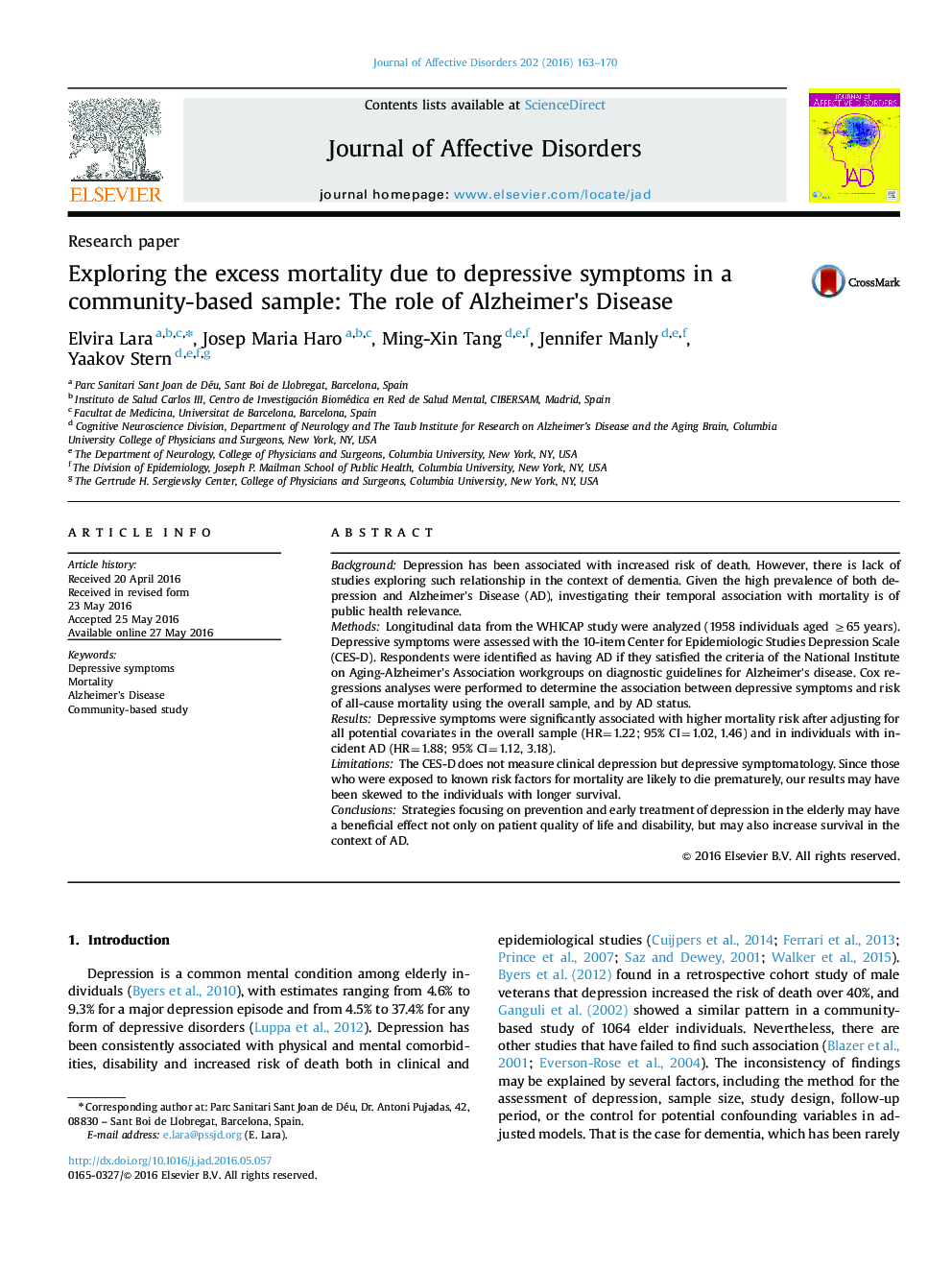| Article ID | Journal | Published Year | Pages | File Type |
|---|---|---|---|---|
| 6229949 | Journal of Affective Disorders | 2016 | 8 Pages |
â¢Depressive mood constitutes a predictor of mortality in the general population.â¢Depressed mood was associated with higher mortality risk in incident AD individuals.â¢Confirmation of the previous association in the context of dementia is necessary.â¢Reducing incident-cases of depression would have beneficial effects on survival.
BackgroundDepression has been associated with increased risk of death. However, there is lack of studies exploring such relationship in the context of dementia. Given the high prevalence of both depression and Alzheimer's Disease (AD), investigating their temporal association with mortality is of public health relevance.MethodsLongitudinal data from the WHICAP study were analyzed (1958 individuals aged â¥65 years). Depressive symptoms were assessed with the 10-item Center for Epidemiologic Studies Depression Scale (CES-D). Respondents were identified as having AD if they satisfied the criteria of the National Institute on Aging-Alzheimer's Association workgroups on diagnostic guidelines for Alzheimer's disease. Cox regressions analyses were performed to determine the association between depressive symptoms and risk of all-cause mortality using the overall sample, and by AD status.ResultsDepressive symptoms were significantly associated with higher mortality risk after adjusting for all potential covariates in the overall sample (HR=1.22; 95% CI=1.02, 1.46) and in individuals with incident AD (HR=1.88; 95% CI=1.12, 3.18).LimitationsThe CES-D does not measure clinical depression but depressive symptomatology. Since those who were exposed to known risk factors for mortality are likely to die prematurely, our results may have been skewed to the individuals with longer survival.ConclusionsStrategies focusing on prevention and early treatment of depression in the elderly may have a beneficial effect not only on patient quality of life and disability, but may also increase survival in the context of AD.
